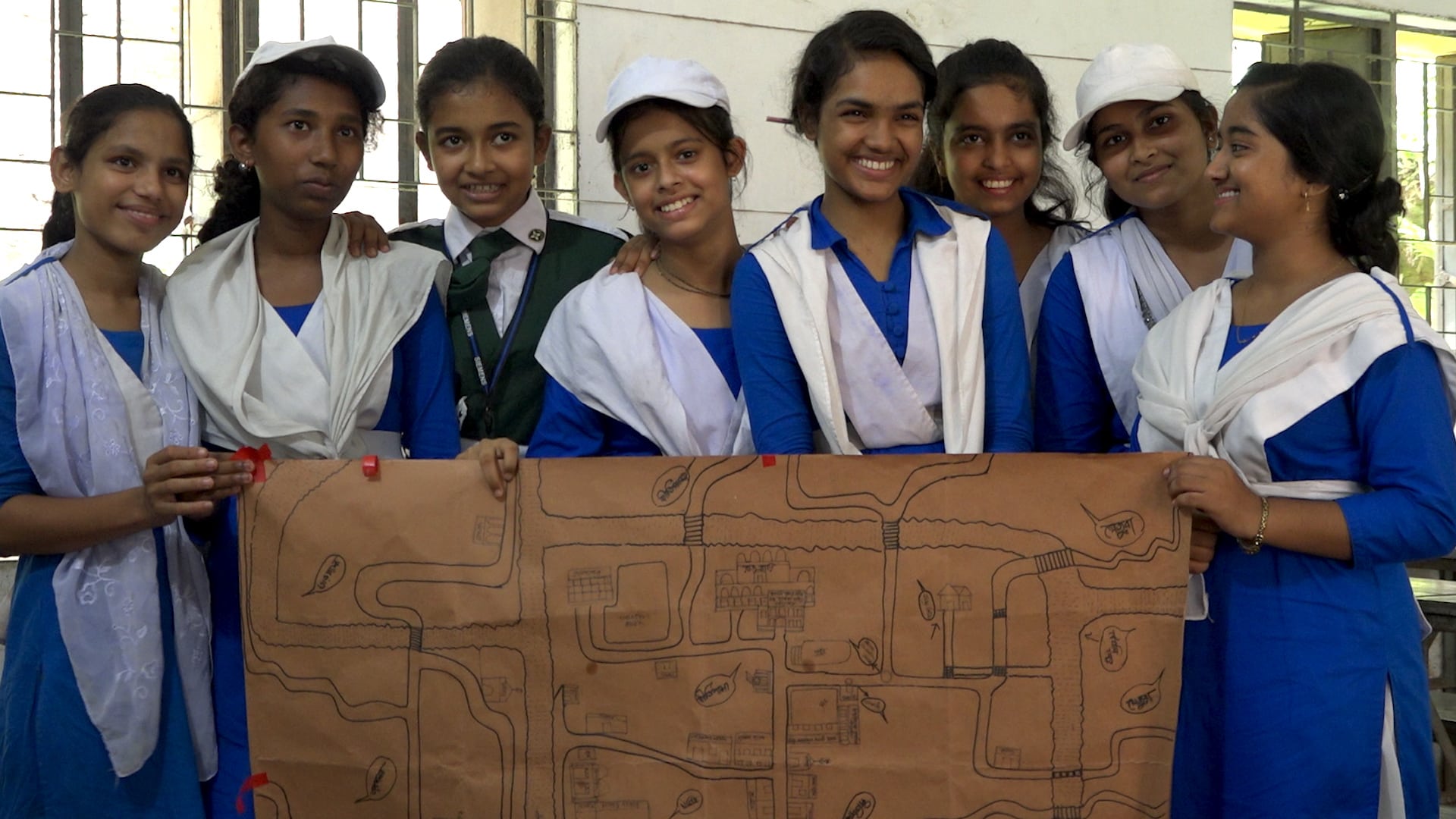UN Secretary – General António Guterres
August 12 is International Youth Day, a day to bring attention to the power of the world’s youth and encourage young people’s inclusive participation in creating a better future. The theme of this year’s International Youth Day is “Transforming Food Systems: Youth Innovation for Human and Planetary Health” and highlights the critical role of young people in building a healthier and more sustainable food system that will ensure both human and planetary wellbeing.
The FAO State of Food Security Report has revealed that COVID-19 was an unprecedented setback in the global effort to end hunger. COVID-19 highlighted how fragile our global progress toward ending hunger really is. The ongoing global effort to end hunger cannot be achieved without the meaningful participation of young people everywhere. Today’s youth must have voice and agency in the decision-making processes that affect them.
Our food systems are being jeopardized by myriad global issues that are further exacerbated by the COVID-19 pandemic. The fragility of food systems is most noticeable in those that rely on trade, and the negative impacts of food system failures most acutely effect small-food producers, women and girls, and Indigenous populations. The lasting effects of current food policies will impact all future generations. Young people around the world are the future stewards of our food systems. Their creativity and progressive thinking is necessary to enact systemic change. Food systems will need this kind of change as challenges of the climate crisis, public health, population growth and poverty increase and continue to stifle progress towards our goal of ending hunger. By encouraging young people to create innovative solutions for food systems and our planet, and by ensuring that they have a seat at the table at every level of decision-making that impacts their future, we can sustainably transform our global food systems.
Join The Hunger Project, the Movement for Community-Led Development and FeelGood our partners around the world in endorsing young people everywhere as the future leaders of our world and stewards of vital global food systems.
What We Do
The Hunger Project is committed to amplifying the voices of youth and uplifting them as active members in their communities. We mobilize entire communities into self-reliance by building people’s skills, leadership and confidence. This means equipping young women and men with the skills, methods and knowledge needed to take self-reliant action to improve their lives and conditions in their communities.
Here are some stories of the inspiring youth we get to work with everyday:
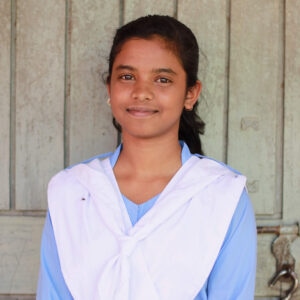 Bonani is a member of the Empowerment Unit at her school in Fakirhat Upazila, Bangladesh. Bonani advocates for the education of young girls and works to make girls’ education safer and more accessible. She and her peers restored an old bathroom to accommodate girls in school, installed an anonymous complaint box for girls’ safety, and continues to speak out against teasing in her community.
Bonani is a member of the Empowerment Unit at her school in Fakirhat Upazila, Bangladesh. Bonani advocates for the education of young girls and works to make girls’ education safer and more accessible. She and her peers restored an old bathroom to accommodate girls in school, installed an anonymous complaint box for girls’ safety, and continues to speak out against teasing in her community.
“Boys take many advantages, why not girls? Everyone should have the right to take part in cultural activities.” – Bonani
Over 100,000 young leaders like Bonani have engaged in self-and community-development activities with THP-Bangladesh. Youth are the future!
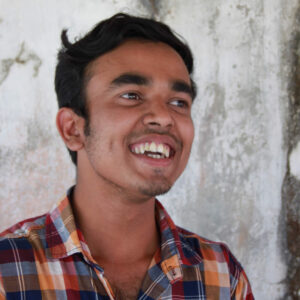 At age 12, Rocky (Rakibul) joined an Active Citizen Youth Leadership Training with The Hunger Project-Bangladesh. Since his graduation, Rocky has successfully implemented multiple social action projects. Among these are projects that work to stop child marriage, reduce student drop-outs with government funding, and create a night school to increase adult literacy.
At age 12, Rocky (Rakibul) joined an Active Citizen Youth Leadership Training with The Hunger Project-Bangladesh. Since his graduation, Rocky has successfully implemented multiple social action projects. Among these are projects that work to stop child marriage, reduce student drop-outs with government funding, and create a night school to increase adult literacy.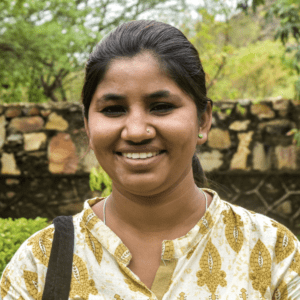 Basanti, just 24 years old, was elected as President in her panchayat by over 400 votes. She attended THP-India’s workshops for women-elected leaders and has since achieved incredible things. She connected her panchayat to electricity and had a pipeline constructed. Currently, she is working to have a school built and a road constructed up a mountain to a holy site. She also recently won an award for being one of the best presidents in her area.
Basanti, just 24 years old, was elected as President in her panchayat by over 400 votes. She attended THP-India’s workshops for women-elected leaders and has since achieved incredible things. She connected her panchayat to electricity and had a pipeline constructed. Currently, she is working to have a school built and a road constructed up a mountain to a holy site. She also recently won an award for being one of the best presidents in her area.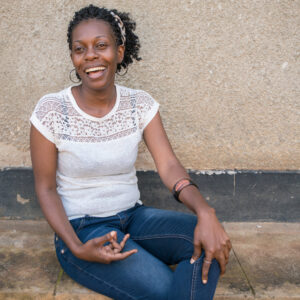 Christine Nanyombi is a local volunteer with THP-Uganda, who recently participated in a hike with the Girls Not Brides network to break the stigma around menstrual health for women and girls. The hike rises a distance of 3,012m above sea level to Karangura peak on Mountain Rwenzori, a significant journey for anyone.
Christine Nanyombi is a local volunteer with THP-Uganda, who recently participated in a hike with the Girls Not Brides network to break the stigma around menstrual health for women and girls. The hike rises a distance of 3,012m above sea level to Karangura peak on Mountain Rwenzori, a significant journey for anyone.
Christine noted, “As I hiked, I could not stop thinking about the plight of the Nyarukamba girls who trek this journey every day back and forth to school, despite having no access to sanitary pads. They never miss school. The hike was a spiritual awakening and allowed me to reflect on the Epicenter Strategy and how it promotes self-reliance among community partners. The realization has motivated me to rally behind our communities as they demand favorable policies that support women and girls to meet their basic needs, including access to better sexual and reproductive health and services to break the stigma of menstruation.”
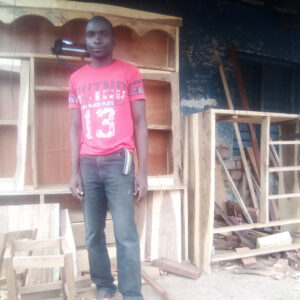 Tchale Fanuel is an inspiring member of THP-Malawi’s youth economic empowerment program. After participating in a Vision, Commitment, Action workshop in 2017, he decided to pursue carpentry training in Majete 3 Epicenter in Chikwawa district. Since he had no money to buy carpentry equipment to start his own shop, he partnered with a well-known carpenter in the nearby community who had the necessary equipment and an established shop. The two continue working together today and Tchale is able to earn income to support himself, his siblings and his parents. Tchale has transformed his and his family’s lives with the skills he learned and income he is earning. Tchale plans to buy carpentry equipment for himself so that he can open his own shop.
Tchale Fanuel is an inspiring member of THP-Malawi’s youth economic empowerment program. After participating in a Vision, Commitment, Action workshop in 2017, he decided to pursue carpentry training in Majete 3 Epicenter in Chikwawa district. Since he had no money to buy carpentry equipment to start his own shop, he partnered with a well-known carpenter in the nearby community who had the necessary equipment and an established shop. The two continue working together today and Tchale is able to earn income to support himself, his siblings and his parents. Tchale has transformed his and his family’s lives with the skills he learned and income he is earning. Tchale plans to buy carpentry equipment for himself so that he can open his own shop.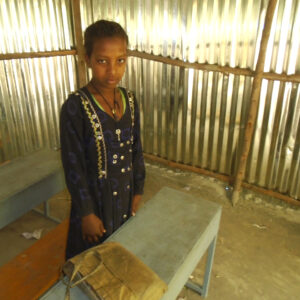 Meseret is advocating to end child marriage in her community.
Meseret is advocating to end child marriage in her community.
“When I was in grade 5, I learned from THP-Ethiopia teachers and girls’ club peer educators about my right to pursue an education and the risks of early marriage. That same year, my family agreed to marry me to a local man. I was only 12 years old. I told [my father] again and again about what I had learned, including the side effects of early marriage, which, I suspect, affected him and finally won his favor. Now I am in grade 7 and tell my stories to my friends who may face the same problem so that they too can defend themselves.”
What You Can Do
- Invest now in youth around the globe who are working to end hunger.
- Join the global conversation about International Youth Day and let your voice be heard! Follow along and share your thoughts with #YouthDay and #YouthMakeADifference.
- Join the TikTok Takeover by answering the question: “How do you make the world a better place for the future?” Then tag us @TheHungerProject and use #YouthDay and #YouthMakeADifference.
The bill promotes girls’ leadership and political participation and aims to support efforts to include girls in decision-making spaces on every level.

